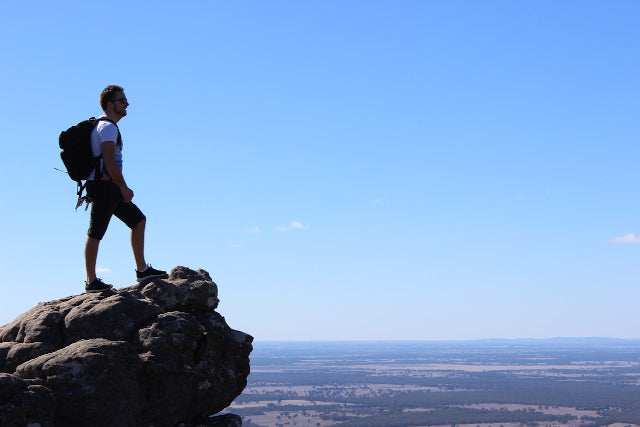Hiking is the perfect activity to introduce yourself to the great outdoors. One of the biggest mistakes that beginner hikers tend to make is setting out with a basic backpack. Though some may feel that a standard school backpack is more than adequate, seasoned hikers would disagree. A specialty hiking backpack can help make your hike more enjoyable and offers plenty of advantages often overlooked by beginners.
Before setting out into the wilderness, consider these seven things to look for in a hiking pack:
1. Consider Its Purpose
Before you even start to look at hiking backpacks, take into consideration its actual purpose. Where are you looking to use it? A backpack you would use for a basic mid-day hike is not the same you would use to trek across the globe or pitch a tent overnight. Of course, if you want your backpack to have everything, some compromise is in order!
Backpack capacity recommendations:
- For day trips, 18-30L
- No tent longer hikes, 30-55L
- Global hiking and overnight stay, 40-65L
*For winter hiking, choose a large capacity pack to store your extra belongings.
2. Finding the Right Fit
It's important to select a hiking pack that's proportionate to your body size and weight. Choosing something much too large for your build may cause you to topple or suffer unduly. In addition, the right backpack size means that the weight is better distributed and that can eliminate unnecessary fatigue or back pain.
Most manufacturers are pretty good about providing sizing for their backpacks. Get your own measurements before making the final call. Grab a tape measure and get the measurement from the back of your neck to your tailbone. This will give you a basic idea in terms of sizing.
It's important to search for backpacks that rely on your torso length. Of course, this alone won't determine perfect fit, as you always need to try a pack on for size.
3. Selecting the Ideal Suspension
The backpack's suspension determines how much comfort you can expect when carrying the full weight of the pack. A design that has a flimsy hip belt will mean putting the brunt of the weight on your shoulders. This in turn results in excessive slouching and back pain.
4. The Best Shoulder Straps
A common misconception is that choosing thick padded shoulder straps will make a pack more comfortable. In actuality, the weight should be transferred to your hip belt. Your shoulder straps should have proper contouring to conform to your body shape. This ensures hours of usage without chafing or pinching.

5. The Right Amount of Ventilation
Unfortunately, no matter which backpack you choose, a sweaty back is a necessary evil. The only thing that can be done is to select a hiking pack with a good ventilation design. This ensures less sweating, though not eliminating it in its entirety.
The ventilation system is found in the back panel. More often than not, it's comprised of a breathable mesh material that draws the pack away from your back and allows for air to flow freely.
6. Want Vs. Need
There are many features that a hiking pack may have, but is it necessary for you and does the extra cost make sense? For example, all packs have basic water resistance, but if you're going hiking somewhere where rain is expected, choosing a pack with rain cover simply makes sense. In addition, not all packs will have side water bottle storage or exterior access to the main interior compartment.
7. Budget Accordingly
In the case of hiking backpacks, cost does often dictate quality and durability. Having said that, depending on your personal level of investment in hiking, you may not need to go all out. If there are certain features, you're unlikely to ever need, there's simply no reason to add to the cost of your new pack.
For example, if you tend to invest your efforts into day hikes, a solid construction nylon backpack, though more expensive than polyester, will serve your needs adequately. You won't need all of the bells and whistles of a more expensive pack simply because you won't use them all. Bear in mind, regardless of your intentions, durability is the most important factor.
As a beginner hiker, you will undoubtedly feel overwhelmed by the sheer number of options available. It's important to choose your first hiking pack wisely because it does determine the quality of your trip. If you choose something with less features than what you need, you will undoubtedly suffer unduly during your next outing.
Using these easy tips will make finding the right hiking backpack a breeze. All you have to do now is decide on the color. Grab your new gear and let’s get out there!
----------------
Advanced Primate would like to thank Brian from Outside How for this awesome contribution to our growing knowledge base. For more great outdoor advice you can check the rest of Brian's knowledge drops at outsidehow.com.







